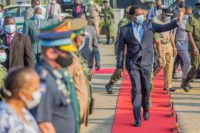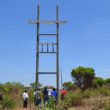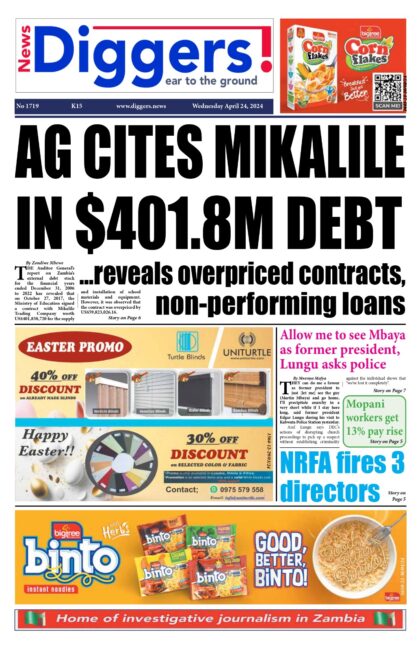The U.S Government has committed to provide $750,000 in support of a partnership between the Energy Regulation Board (ERB) and the U.S National Association of Regulation Utility Commissions (NARUC) aimed at increasing electricity generation capacity in Zambia.
This is according to a statement issued by United States Embassy to Zambia Public Affairs Officer Janet Deutsch, Wednesday.
Earlier, the United States Agency for International Development (USAID) through the ‘Power Africa Initiative’ joined the Zambian government and stakeholders in the private sector to increase electricity generation capacity as well as the number of electricity connections.
And USAID-Zambia Acting Mission Director Thomas Crubaugh said that the partnership between the ERB and NARUC signified USAID’s interest in improving the landscape and to ignite increased investment in Zambia’s energy sector.
“On May 10, in response to the proactive leadership of the Zambian Energy Regulation Board (ERB), USAID witnessed the signing of a Memorandum of Understanding between the ERB and the U.S. National Association of Regulatory Utility Commissioners (NARUC). The United States has committed to providing $750,000 in support for this partnership,” Deutsch quoted Crubaugh as saying.
“This partnership between the ERB and NARUC signifies USAID’s interest in improving the landscape and to ignite increased investment in Zambia’s energy sector,”said Mr. Crubaugh. “We believe the Zambian government and local agencies should build upon this development and consider how to strengthen the existing regulatory framework to expand the portfolio of energy resources.”
Crubaugh said NARUC and the ERB would over the next two years embark on several critical tasks which among them included the development of cost-reflective tariffs, an off-grid regulatory framework, and an empowered ERB with regulatory autonomy.
“The U.S. Power Africa Initiative will also extend support to specific projects that either contribute to increased electricity generation, or to increased electricity connections. For example, recently the United States Trade & Development Agency provided feasibility-study financing for Zambian projects with technologies – including geothermal and wind – which are new not only to the Zambian power grid, but also to country’s current electricity regulatory regime. Across Zambia and sub-Saharan Africa, two out of three people do not have access to electricity, and there is an urgent need to generate new electrical power, to increase access, and to diversify the energy-generation mix. Combined with other Power Africa support, ERB initiatives are poised to significantly develop and sustain an enabling environment within the nation’s power sector,” said Crubaugh.
“USAID urges both the ERB and NARUC to focus on the end targets of increasing power generation capacity and power connectivity, for only by doing so can the goal of more equitable electricity access in Zambia be achieved.”












